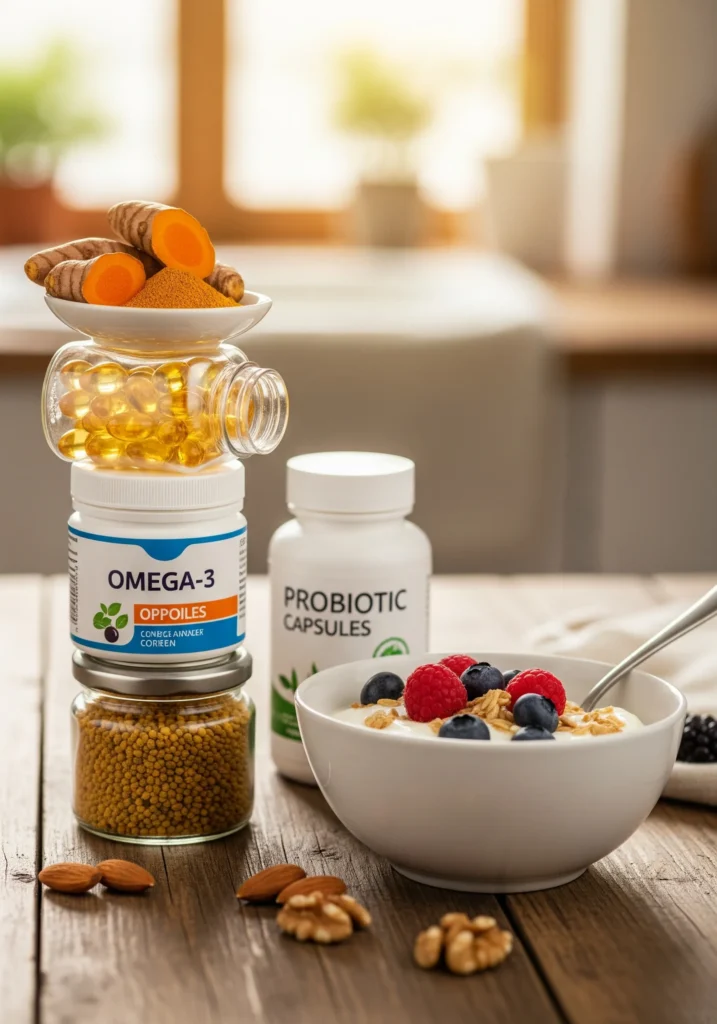Dopamine is often called the “feel-good” neurotransmitter, and for good reason. It plays a crucial role in motivation, mood, focus, memory, and even movement. When dopamine levels are balanced, you feel energized, inspired, and productive. But when they’re low, you might experience fatigue, lack of interest, mood swings, or difficulty concentrating.
The good news? You don’t always need medication to boost dopamine. There are simple, science-backed lifestyle changes that can help you naturally support healthy dopamine production. In this article, we’ll explore best ways to increase dopamine levels naturally so you can feel happier, more motivated, and more in control of your mental well-being.

1. Eat Dopamine-Boosting Foods
Your diet plays a big role in neurotransmitter production. Foods rich in tyrosine, an amino acid, are essential for dopamine synthesis.
- Lean meats, chicken, and fish
- Eggs and dairy products
- Beans and lentils
- Nuts and seeds
Pro tip: Incorporate foods like bananas, which are naturally high in dopamine precursors.

2. Exercise Regularly
Physical activity is one of the most effective natural ways to boost dopamine. Studies show that both cardio and strength training increase dopamine receptor sensitivity.
- Brisk walking, running, or cycling
- Yoga or Pilates
- Resistance training
Consistency matters more than intensity—just 20–30 minutes daily is enough.

3. Get Enough Quality Sleep
Poor sleep can deplete dopamine receptors in the brain. Aim for 7–9 hours of quality sleep each night to allow your body to restore and regulate neurotransmitters.
- Stick to a sleep schedule.
- Avoid screens an hour before bed.
- Create a calming bedtime routine.

4. Listen to Music You Love
Listening to your favorite songs can instantly trigger dopamine release. Music activates the brain’s reward system, improving mood and motivation.
Pro tip: Create a playlist of upbeat, motivational songs for mornings or workouts.

5. Practice Meditation and Mindfulness
Meditation helps regulate brain chemicals, including dopamine. Mindfulness practices reduce stress, which otherwise depletes dopamine reserves.
- Try guided meditation apps.
- Start with 5–10 minutes daily.
- Focus on breathing exercises.

6. Spend Time in the Sun
Sunlight exposure increases dopamine production in the brain. Aim for 15–30 minutes outdoors daily, preferably in the morning.
If sunlight isn’t available, consider a light therapy lamp during winter months.

7. Reduce Sugar Intake
While sugar gives a temporary dopamine rush, it leads to crashes and long-term dopamine imbalance. Cutting back on processed sugars helps stabilize mood and energy.
Swap candies and soda for fruits, nuts, and natural sweeteners like honey.

8. Try Cold Showers
Cold exposure stimulates dopamine release and improves alertness. Even a short cold shower can enhance mood and energy.
Tip: Alternate between warm and cold water for added benefits.

9. Set and Achieve Small Goals
Completing tasks—big or small—activates dopamine pathways in the brain. This is why checking off items on your to-do list feels so rewarding.
- Break large projects into smaller steps.
- Celebrate progress along the way.

10. Practice Gratitude
Gratitude journaling helps shift your focus from stress to positivity, increasing dopamine and serotonin levels.
Write down 3 things you’re grateful for each day to rewire your brain toward positivity.
11. Avoid Dopamine Drains (Social Media Overuse)
Excessive scrolling and instant gratification activities can deplete dopamine over time. Limit screen time and focus on real-life connections instead.
Tip: Try a digital detox for a few hours daily.
12. Take Probiotics for Gut Health
The gut and brain are deeply connected. A healthy gut microbiome supports dopamine production.
- Eat fermented foods like yogurt, kefir, sauerkraut, and kimchi.
- Consider a high-quality probiotic supplement.

13. Engage in Creative Activities
Painting, writing, dancing, or playing music stimulates dopamine release by giving you a sense of accomplishment and joy.
Pro tip: Dedicate 30 minutes a day to a creative hobby.

14. Intermittent Fasting or Healthy Eating Patterns
Some studies suggest that intermittent fasting may increase dopamine receptor sensitivity, improving mood and focus.
- Start with a 12–14 hour fasting window.
- Focus on whole, nutrient-rich foods during eating hours.
15. Build Strong Social Connections
Positive relationships and meaningful interactions release dopamine naturally. Spend time with supportive friends and family.
- Join a fitness class.
- Volunteer or engage in community activities.

Conclusion
Dopamine is a vital neurotransmitter for motivation, happiness, and well-being. By following these best ways to increase dopamine levels naturally, you can support your brain health, boost energy, and live a more fulfilled life without relying on quick fixes.
From eating dopamine-rich foods and exercising regularly to practicing gratitude and engaging in creativity, these habits work together to create long-term balance. Start small, stay consistent, and watch your motivation and mood improve day by day.






